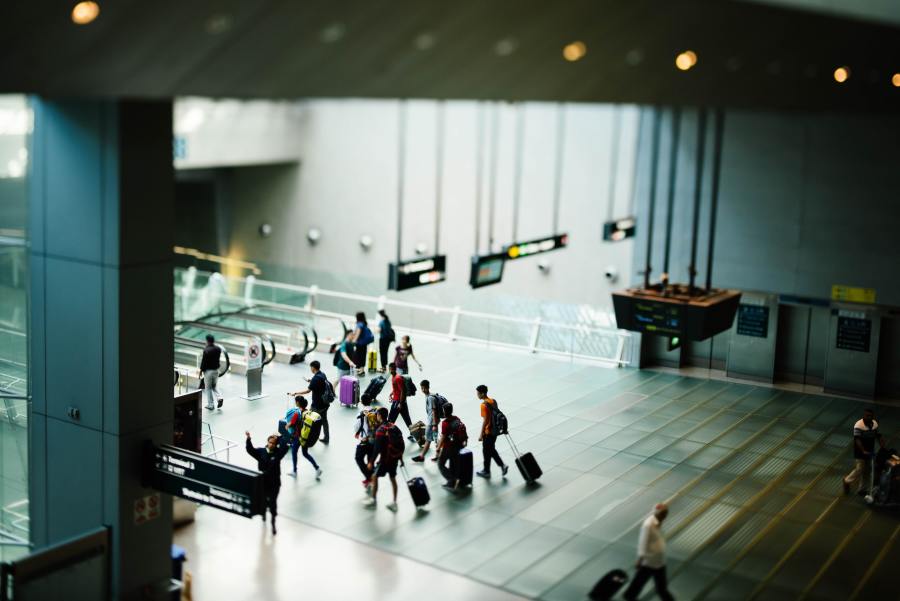With the easing of COVID-19 restrictions and international borders re-opening, many families are looking to explore the world and give their children the rich experience of international travel. Whilst such travel comes with benefits to a child's development, separated parents should be mindful of the rules around international travel including, importantly, the need to obtain the other parent's consent.
If you and your child's other parent share parental responsibility for a child, both parents must consent to the child travelling overseas and must sign the child's passport application.
Who has parental responsibility?
- If there are parenting orders in place, the orders should set out whether parental responsibility is shared (known as equal shared parental responsibility) or if a party has sole parental responsibility.
- If there are no parenting orders in place, section 61C of the Family Law Act 1975 (Cth) provides that both parents have joint and several parental responsibility ─ that is, parents can make decisions without the other parent's consent, although it is preferable to attempt to reach decisions together.
Where parental responsibility is shared, both parents are obliged to make joint decisions for long-term issues affecting the child's care, welfare and development. Such issues include health, medical decisions, education, religion, the child's name and international travel.
It is common for parental responsibility to be shared, either by agreement or determined by the court. This means parents will need to agree on the proposed travel arrangements for the children.
Parents with sole parental responsibility will generally be able to make decisions about travel without engaging with their child's other parent.
Travelling overseas with children
Where there are orders in place, it is important that the travelling parent:
- checks any parenting orders regarding any conditions imposed for the proposed travel. For example, do the parenting orders prevent travel to particular countries such as countries that are not a signatory to the Hague Convention on the Civil Aspects of International Child Abduction? Do the parenting orders provide for travel to only occur during certain periods, such as school holidays?
- complies with any requirements to provide information and documents to the non-travelling parent. For example, the orders may require the parent to provide advance notice (eg 4-6 weeks' notice) of the proposed travel and are likely to require the travelling parent to provide copies of the travel itinerary, return airline tickets, telephone numbers and addresses where the child can be contacted overseas
- ensures the child's passport is valid and if it is not, ensures that both parents sign and consent to the child's passport application in advance of the travel. Parents should allow at least six weeks for a passport application to be considered
- maintains any communication arrangements between the child and the non-travelling parent. For example, if the child usually calls the non-travelling parent every day or on multiple occasions during the week, it is important to preserve these arrangements where reasonably practicable or put other arrangements in place to ensure the child continues to maintain connection and communication with the other parent while they travel. The travelling parent should check the orders to ensure they continue to comply with the telephone contact arrangements, noting that there may be specific provisions that apply during travel.
Where there are no orders in place, or orders do not have specific travel provisions, the travelling parent needs to be aware that consent in writing is required from the non-travelling parent. This also applies if parties are involved in parenting proceedings which have not concluded (even if a parent has just filed court documents but no decision has yet been made by the court). Failure to obtain written consent could result in a criminal conviction for the wrongful removal of a child from Australia.
Even if there are no orders in place and/or the other parent consents in writing to the travel, it is best practice to provide them with an itinerary, copies of return tickets, and to provide for communication between the child and parent whilst travelling.
What do I do if the other parent does not agree?
If parents cannot reach agreement on the proposed travel, the parent who wishes to travel with the child will need to bring an application to the court to seek orders permitting the travel. Parents should exhaust all avenues for reaching agreement, including mediation/family dispute resolution, before approaching the court.
If a court application is required, the parent should carefully consider whether the proposed travel is in the child's best interests. The court will only make orders permitting the travel where it is in the child's best interests and the parent proposing to travel will need to set out in detail in their affidavit why the travel is in the child's best interests.
For applications made about Christmas school holiday contact, the court imposes filing deadlines. For 2022, any applications for holiday travel must be made by 11 November 2022. Applications made after that date may not be heard until some time in 2023.
If you hold concerns that a parent will travel overseas with a child without your permission, you should contact a lawyer urgently.
Checklist
If you are a parent considering travelling with your child, you should keep the following in mind.
- Are there parenting orders in place or court proceedings on foot for parenting issues?
- Do you have shared parental responsibility for the child?
- If so, does the other parent consent to the travel?
- Is the child's passport valid?
- Do you hold the child's passport? If not, what are the arrangements for obtaining the passport from the other parent and returning it to them?
- Are there any conditions on where and when you can travel with the child? (Check the parenting orders or parenting plan).
- Are there any notice requirements or requirements to provide documents? (Check the parenting orders or parenting plan).
- What are the communication arrangements while the child is travelling with you?
Parents who find themselves in a dispute about international travel should carefully consider and weigh the benefits of any travel against being involved in litigation.
If you have any questions regarding complying with orders or international travel, please contact a member of our Family & Relationship Law team.
Photo by Chuttersnap on Unsplash
All information on this site is of a general nature only and is not intended to be relied upon as, nor to be a substitute for, specific legal professional advice. No responsibility for the loss occasioned to any person acting on or refraining from action as a result of any material published can be accepted. Lander & Rogers is furthermore committed to providing legal advice and content that is factual, true, practical and understandable. Learn more about our editorial policy.
 Client portal
Client portal












